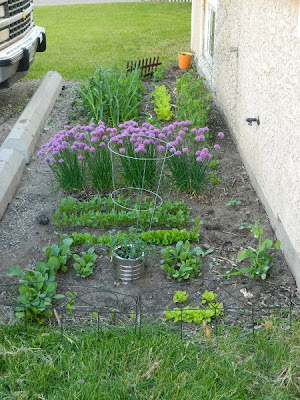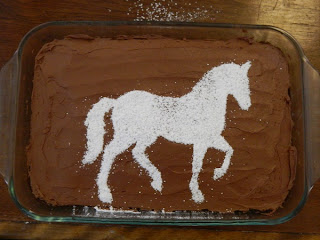Recently, I heard about the value of being a generalist from two different places. First, I attended a workshop on permaculture by
Rob Avis of Verge Permaculture. He suggested that being a generalist was valuable for permaculture because you need to be able to see whole systems and integrate a lot of different parts. You can, of course, specialize in mycellium or straw bale building, but you need to be able to put that together with a working knowledge of botany, climatology, animal husbandry, energy flows, nutrient cycling, etc. in order to create a permaculture system.
On her science blog,
Sharon Astyk reviews some homesteading/small farming how-to books and says,
Agriculture requires a wide-ranging set of skills vaster than almost any field I can imagine, and while one becomes deeply expert in some parts of the work, it is still necessary, even imperative, to constantly be gaining some superficial understanding of a host of new things. The generalist is jack of many trades, but master of few. That's not a criticism.
This is good news if you're a person who's highly curious, who likes to see how things fit together, or who has a five year old who asks 'why' and 'how' a lot. In a way, it's what attracted me to my first career, teaching. A mentor told me, "You will never be bored." It was true, except for during staff meetings.
I also think there's danger in our becoming a world of specialists. For one, it results in certain metaphors being transposed where this may not be appropriate - so that, for example, everything is a business. To a businessperson, this seems axiomatic. Post-secondary education must produce workers trained for a specific career, and must pay for itself. I am expected to do a financial cost-benefit analysis when deciding whether to take a job in another city, and if I decide to turn it down for family reasons then I am not a serious candidate. If I sell vegetables with business profits foremost, then I must try to achieve a premium price and lower my costs, which may mean that my produce is only available to the rich, or that I use free municipal waste, replete with pharmaceutical residue, to fertilize my crops. If I sell vegetables with the goal of increasing food security, biodiversity, and community engagement, my practices will look quite different and I may use a different metaphor to guide my practices - perhaps the metaphor of an ecosystem.
It's at this point that
Gregory Bateson weighs in with the suggestion that
"whenever we pride ourselves upon finding a newer, stricter way of thought or exposition; whenever we start insisting too hard upon "operationalism" or symbolic logic or any other of these very essential systems of tramlines, we lose something of the ability to think new thoughts. And equally, of course, whenever we rebel against the sterile rigidity of formal thought and exposition and let our ideas run wild, we likewise lose. As I see it, the advances in scientific thought come from a combination of loose and strict thinking" *
In other words, a wide experience helps us to think of new ideas, to see new things, which can then be refined and tested. Perhaps all the things that I am learning, seemingly dissociated, will be used in ways I can't yet foresee. Learning many ways to learn may be the best strategy.
* Bateson, G. (1941). Experiments in Thinking about Observed Ethnological Material, Philosophy of Science, 8(1): 53-68.



















































This time, though, I am glad I read the comments because I found this gem. I've been thinking a lot about waste lately, and about how to create as closed a system as possible with my gardening (and eventually, my daily living) so that I am not, for example, taking phosporous from Morroco and then peeing my own phosphorous into the local lake where our sewage ends up. This could be a closed loop within community - I have no problem using a friend's horse manure and returning vegetables to her. Basically, I don't want to enrich my own situation by impoverishing another. Nature provides a beautiful model to follow, and this commenter explains how it works in a food system:
Well, I think the commenter has given the answer to her own question - the engine of capitalist growth that we are all feeding drives our food system. The many fundraisers to cure cancer, and the lack of fundraisers to prevent it come to mind - it is far more profitable to create a pharmaceutical to cure a disease than to ban cosmetic pesticides. After all, crime, sickness, war, and pollution all can increase economic activity and therefore increase the GDP, our marker of success.
That is, the marker that we are told indicates success. How would you like to see success defined?